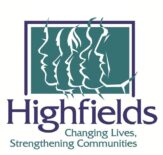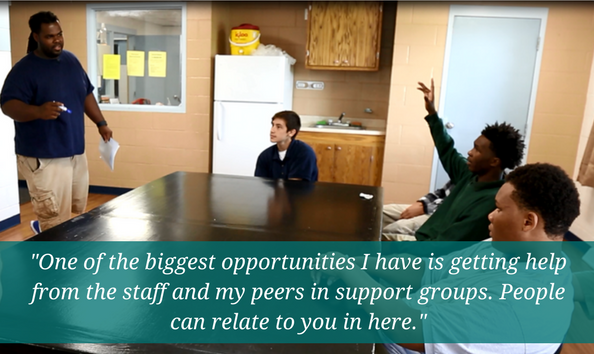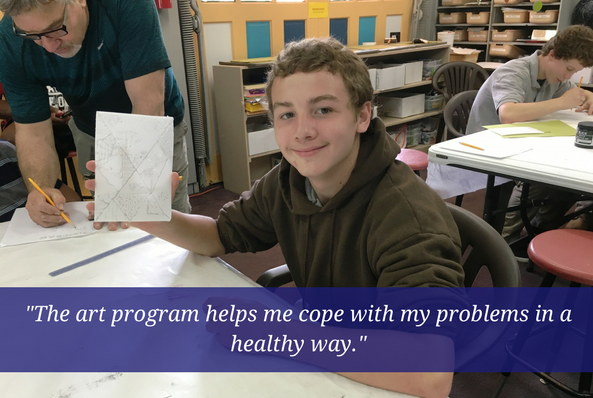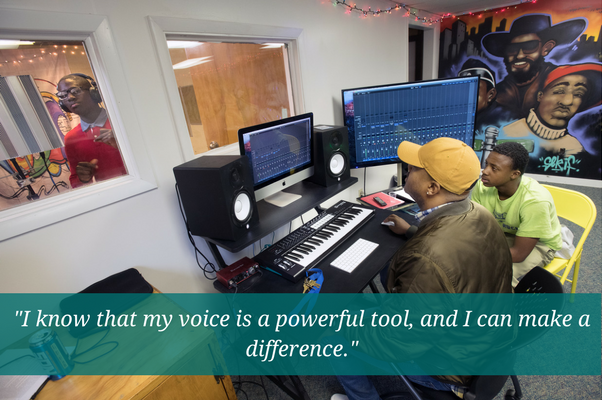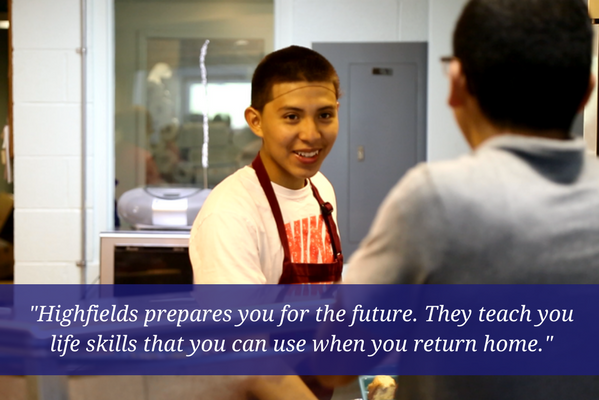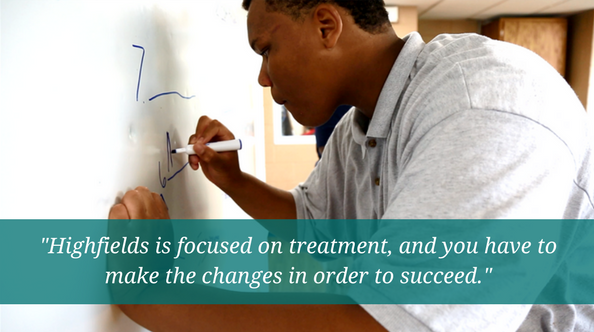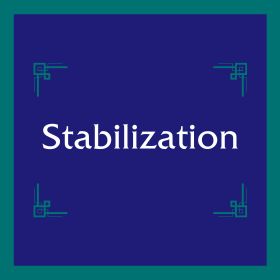Residential programs were the founding blocks of Highfields. Today, our campus is still located on the same 140 acres in rural Ingham County. We have two residential houses, guest cottages, an on-site school and gymnasium. We also have a lake, an indoor and outdoor experiential education course, hiking trails and athletic fields. We offer work sessions, employment opportunities, and a new music studio as part of our Arts and Technology program.
Our Programs:
Both are available to boys ages 11-17 from all over the state of Michigan. Throughout the course of a student’s stay at Highfields, our counselors work with them to learn about their individual needs.
Make a Referral
Wellness Policy
2023 Triennial Wellness
Wellness Policy
Assessment
During a student’s first month in Highfields’ program, time is taken to learn about the youth. This is done through direct observation, interdisciplinary staffing, file review and an in-home family conference with the student’s parents or guardians. To develop an accurate and individualized treatment plan, the following validated assessments are administered:
- Michigan Strength and Needs Assessment
- Michigan Juvenile Justice Assessment System
- Adolescent Alcohol Drug Involvement Scale
- Substance Abuse Subtle Screening Inventory
- Life Events Checklist
- Post-Traumatic Stress Disorder Evaluation Scale
- Psychiatric Evaluation
Evidence-Based Treatment
To best serve students in the Highfields program, several evidenced-based practices are used to provide valid and reliable treatment for an array of issues, including:
- Trauma Informed Care
- Anger Replacement Training
- Cognitive Behavioral Therapy
- Ele’s Place (summer time only)
- Keep It Direct and Simple (KIDS) Journal System
- Equipping Youth to Help One Another (EQUIP Program)
Re-Entry Planning
Highfields strives to produce a release plan that comprehensively addresses any remaining needs of the student and identifies resources for those needs in the community. Release planning starts at least two months before release. All stakeholders, including the student, workers, family and counselors, are included in the process and fully understand it. The process includes interdisciplinary conferences, weekend home visits and cognitive behavioral exercises focused on community success.
The student’s release plan may include:
- Addressing family dynamics
- Addressing health concerns
- Enrolling in counseling
- Scheduling psychiatric services
- Enrolling in school
- Identifying social supports
- Identifying employment opportunities
- Developing relapse prevention plans
- Identifying suitable recreational activities
Professional Consulting Services will provide re-entry care coordination for all Department of Human Services youth.
Aggression Replacement Training (ART) is an intensive and impactful intervention, designed to promote prosocial skills, improve anger control and reduce the frequency of acting out behaviors. Curriculum consists of skill-streaming, moral reasoning, and anger control training. Students are taught skills to allow them to solve problems, improve positive decision making, and improve positive social interactions.
ART helps students have and identify:
• Emotional control- The ability of a person to understand and deal with their emotions in a socially appropriate way
• Triggers- An event or occurrences that causes a response of anger
• Coping Skills- Something that is utilized to help a person deal with a stressful event
• Conflict Cycle- A pattern of negative behavior that a person goes through
Cognitive behavioral therapy (CBT) is provided using the EQUIP program which combines peer helping group methods with cognitive development. CBT is utilized during mutual support group. CBT uses the idea that thoughts lead to actions. Having the understanding of ones thinking pattern can lead them to have an understanding of their behavior.
Work Programs: Our clients are provided the opportunity to work on-campus to earn money and develop their life skills. Highfields has a work program that provided student’s opportunity to become serve-safe certified.
Year round school is provided on campus.
Recreational Therapy: Organized recreational activities are provided such as football, basketball, golf, and weight training. Activities are scheduled to provide opportunities for youth to work together and develop team working skills.
Evidence Based practice: Michigan Juvenile Justice Assessment System (MJJAS) Criminogenic Risk is completed on Phoenix Students. All clients are assessed for strengths and needs and participate in developing a reintegration plan to successfully return them to their communities. ART training also falls under evidence based practice.
Trauma Responsive Care: The practice that all staffs and student interactions will be handled with respect, care and thoughtfulness. Previous trauma of the youth and the family with thought of when interacting with these individuals.
Examples of trauma responsive care:
• Highfields dining hall recently renovated
Integrated Experience- the idea that behaviors and attitudes of staff impact behaviors and attitudes of individuals
• Examples: Staff and student basketball game
